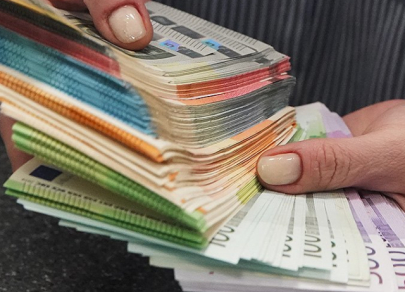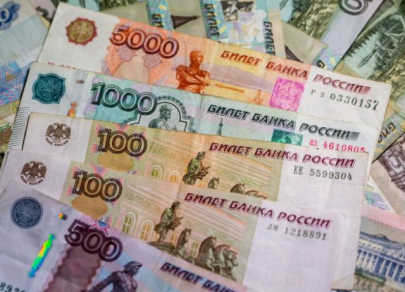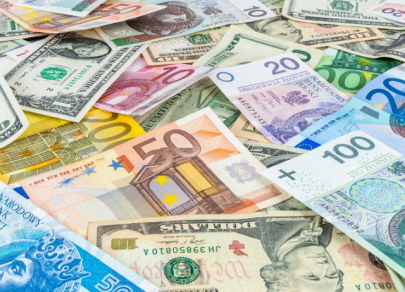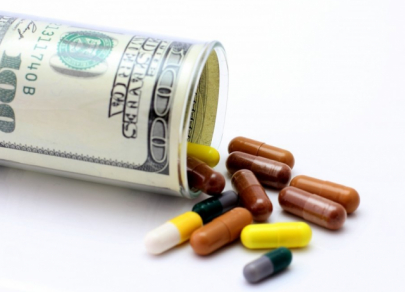FX.co ★ Top 5 ways to save money during COVID-19 pandemic
Top 5 ways to save money during COVID-19 pandemic
Cash money to gain popularity
The chief economist at BCS Global Markets believes that in the event of the second wave of the pandemic, which is already considered inevitable, the crisis will be deeper and longer. The world economy has not fully recovered from the first wave. As a result, the second one will be much more devastating. The only way to save money will be to move to cash money. Notably, according to the expert, the US dollar, the single European currency, and the Japanese yen will be the most resilient assets to the crisis. However, the US currency may extend weakness if the US presidential election is held against the backdrop of political turmoil and debates over its legitimacy. If so, traders should add the euro and the yen to their portfolio. Experts do not recommend investing in such assets as stocks, bonds, or commodities because the risk of losses is extremely high.

Ruble to spread its wings
The next promising asset for investment may surprise. According to the head of FX&MM at Metallinvestbank, the Russian national currency could be quite an attractive asset in the event of a deep crisis. Recently, the ruble has corrected downwards which may indicate a notable growth in the future. Moreover, the analyst advises selling the US dollar and buying 10-year OFZ bonds since their yield is currently high. Besides, their growth is supported by geopolitical tensions and the weakness of the ruble. Among other currencies of developing countries, the ruble looks more attractive. The economic state in the Russian Federation is brighter than in other developing countries. In addition, the difficulties the county is presently facing can be temporary. Russia is likely to tackle them in the near future. The expert sums up that the ruble will only strengthen amid the second way of the pandemic. The only thing that may deter the agency's positive outlook is Russia’s dependence on the oil market. Currently, demand for oil is sluggish amid the oversupply in the global oil market. This is why it is better to refrain from investing in oil.

Currencies of countries with strong economies to remain at forefront
The founder of Movchan's Group, on the contrary, believes that transferring savings in rubles is a risky business. The Russian currency has more than once proved its unpredictability and volatility. In this regard, traders should pay attention to the currencies of countries with strong and stable economies that are less susceptible to external headwinds. Traders can follow this advice in times of crisis as well as quite stable situations in the market. According to experts, the list of currencies that are less vulnerable to the coronavirus-driven crisis includes the US dollar, the euro, the pound sterling, the Japanese yen, and the Swiss franc. Yet, it is not always wise to follow the analysts’ advice. It is better to analyze the situation, use your own judgment, and then choose the appropriate strategy. For instance, if you live in the EU or your trading activity is somehow connected with the eurozone, it is recommended to switch to the euro. Experts warn that traders should avoid investments in the government's bonds and other instruments closely related to them.

Shares of pharmaceutical companies to draw high yield
If the scenario of the second wave of the pandemic turns out to be true, the demand for antiviral drugs and other medicines will grow rapidly. In addition, companies engaged in the production of personal protective equipment (facemasks, gloves, antiseptics, respirators, etc.), are highly likely to roll in money amid an unprecedented wave of demand. Therefore, market players could boost their capital by buying up the shares of companies in the pharmaceutical industry. In spring when the first wave of coronavirus was raging across the world shares of companies from Malaysia producing rubber gloves overshadowed Tesla's stellar rally. The US Fed is ready to make a huge money injection in the economy thanks to massive money printing. For instance, the money will be allocated to various retail companies in those sectors that are most affected by restrictive measures, e.g. McDonald's fast-food chain. It means that the assets of these companies are also suitable for safe investment. The foreign exchange market, on the contrary, looks like a wild card, especially given the sharp decrease of the ruble.

Self-education is always best investment
Head of the Department of International Capital Markets at the Primakov Institute of World Economy and International Relations (Russian Academy of Sciences) advises traders not to succumb to panic. Any crisis has a peak. When it passes, the crisis usually wanes gradually. It is necessary to evaluate the situation soberly. Is it worth trying to make money in a market that is so changeable and unstable? Perhaps it is better to give up constant thoughts about the fate of the US dollar, the fall of the ruble, and other depressing news. It would be much wiser to invest in yourself rather than assets. Whatever analysts say, the situation may change and you will incur serious losses. When investing in yourself, you will benefit in any case. For instance, you obtain new skills, which can be useful after the crisis. Investing money in yourself, your education, new projects, and your family will be a truly win-win option that will pay dividends in the future.






















